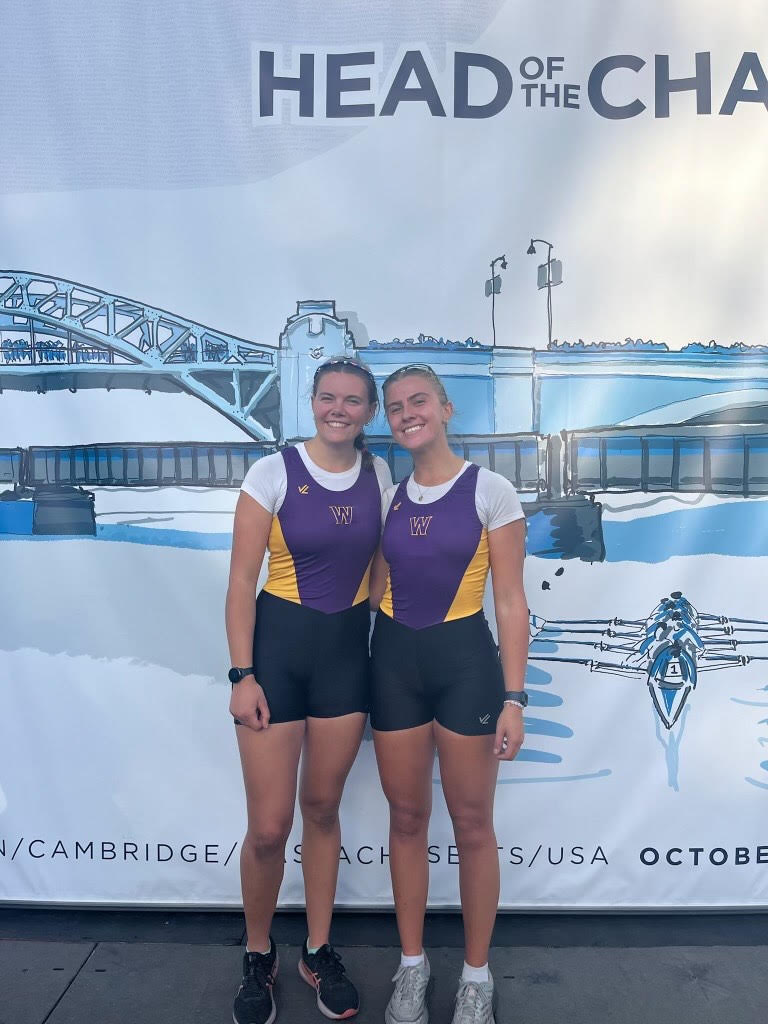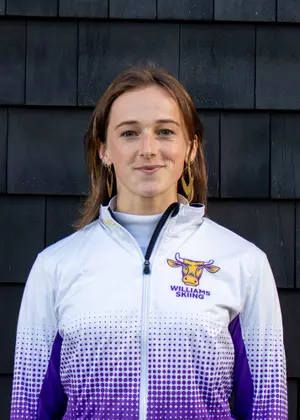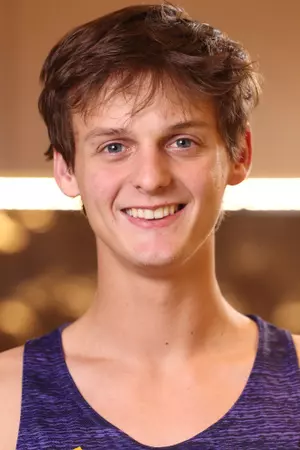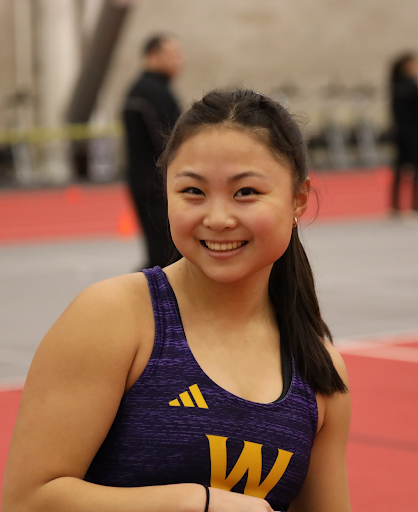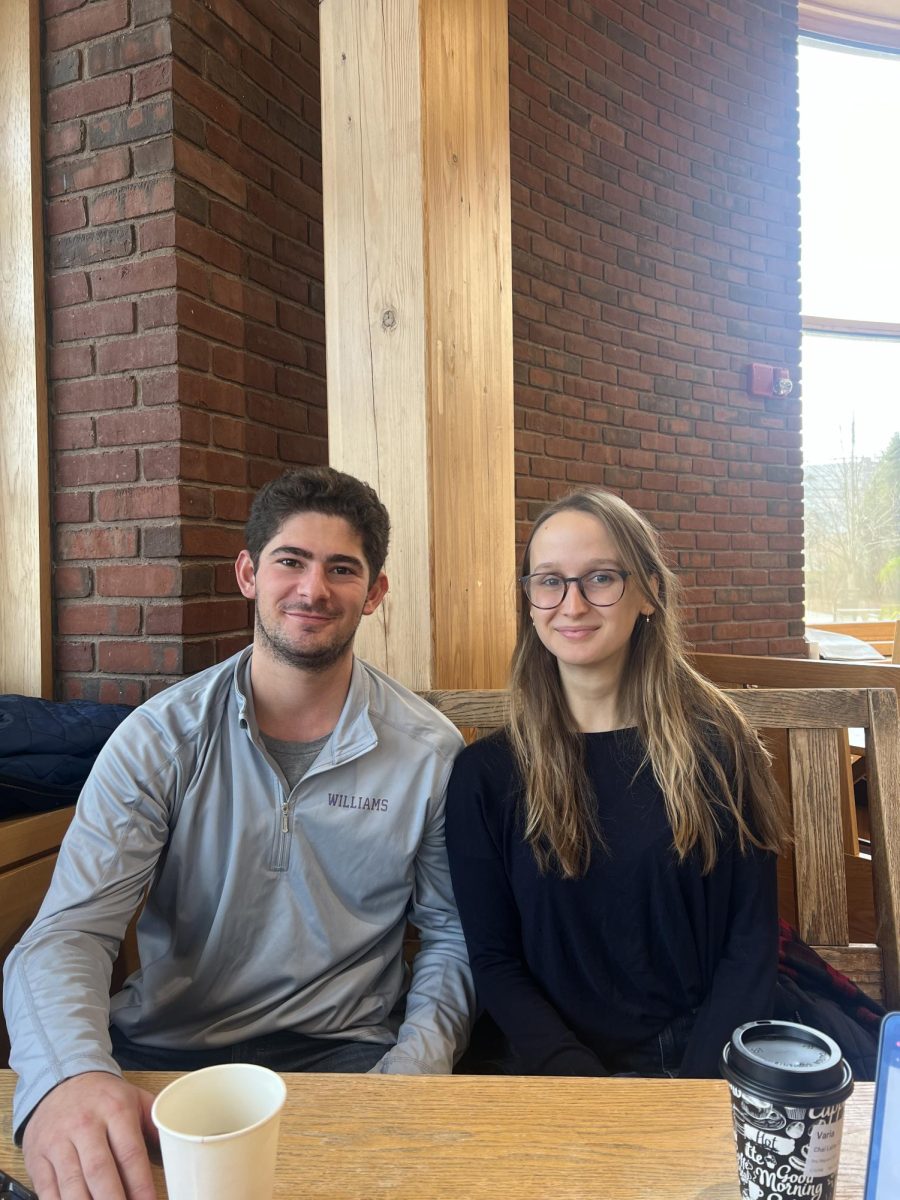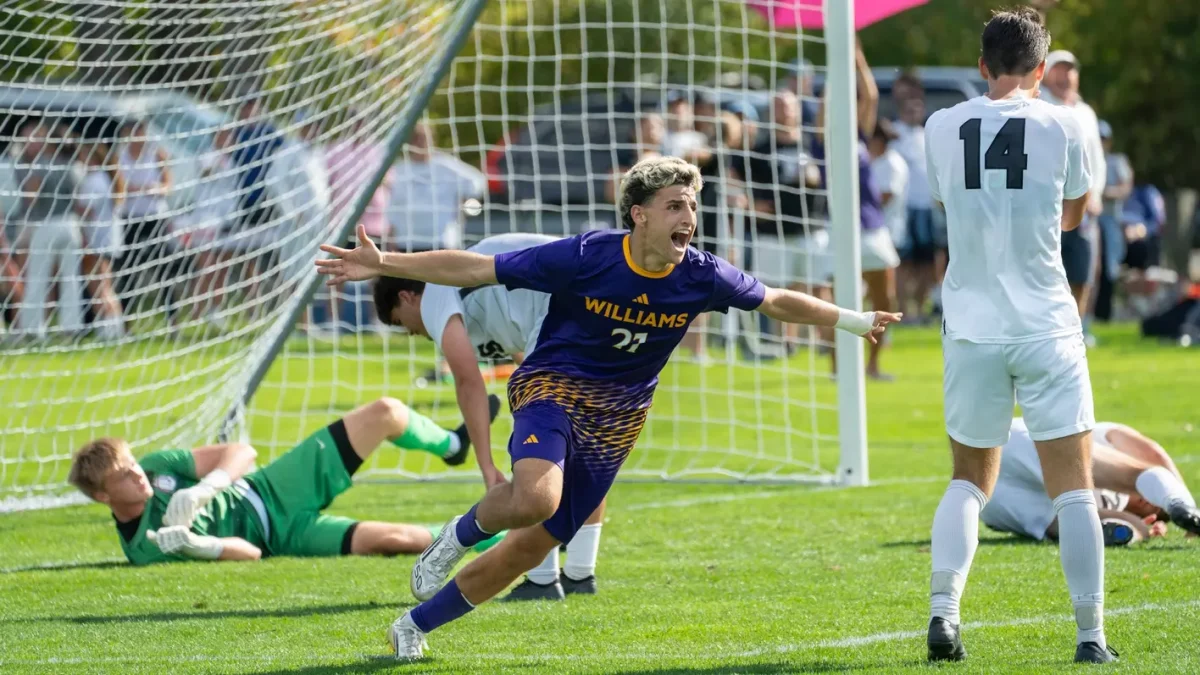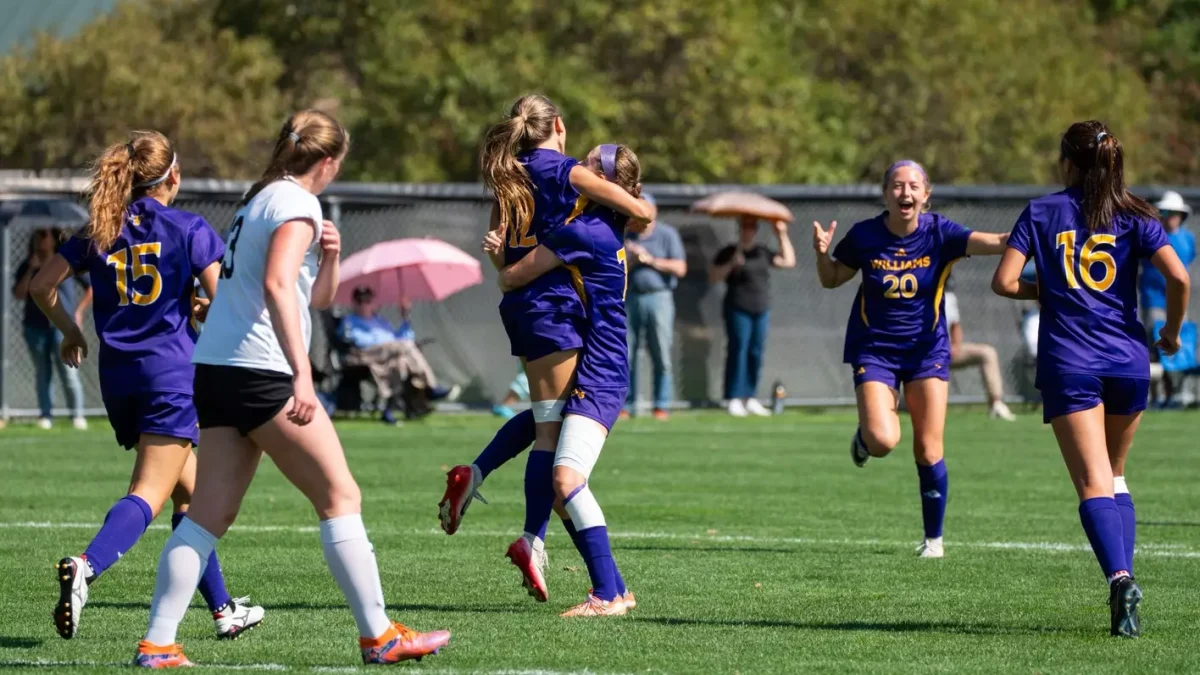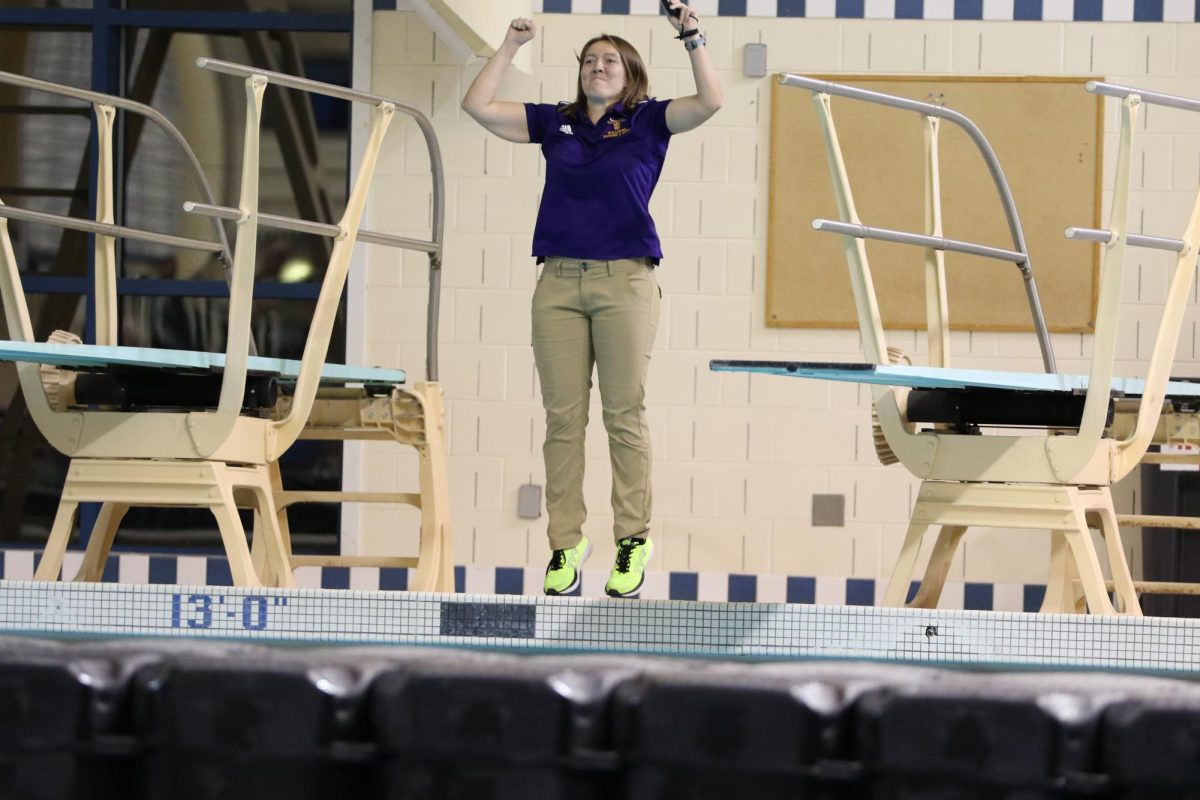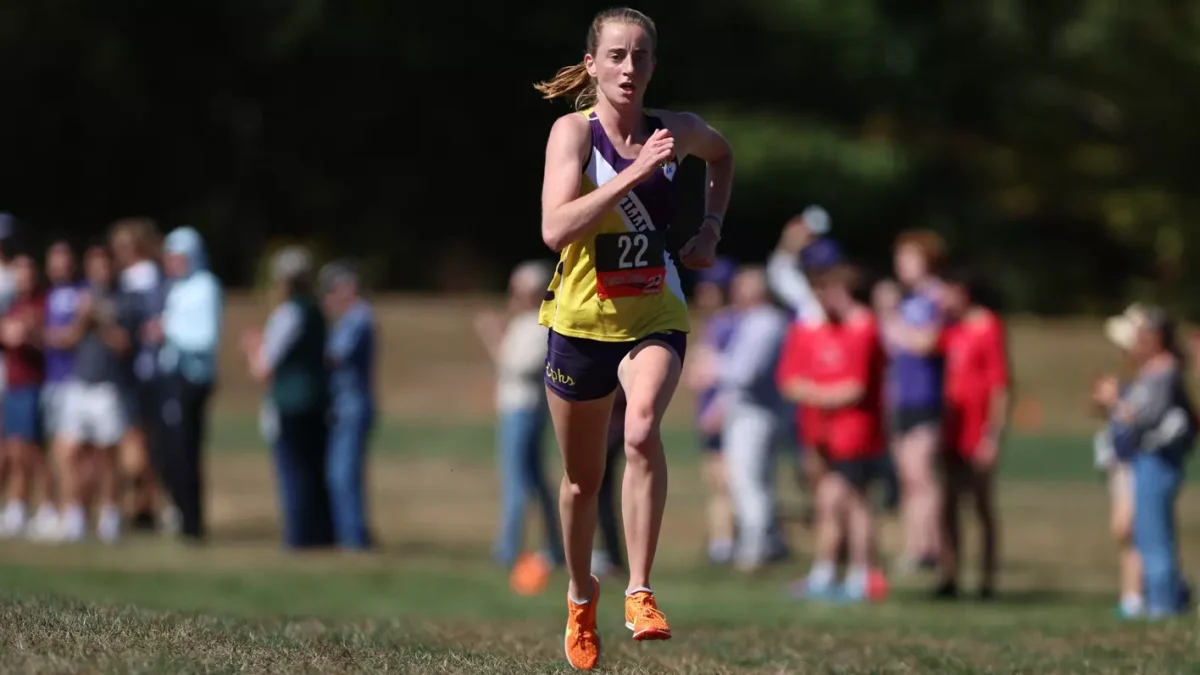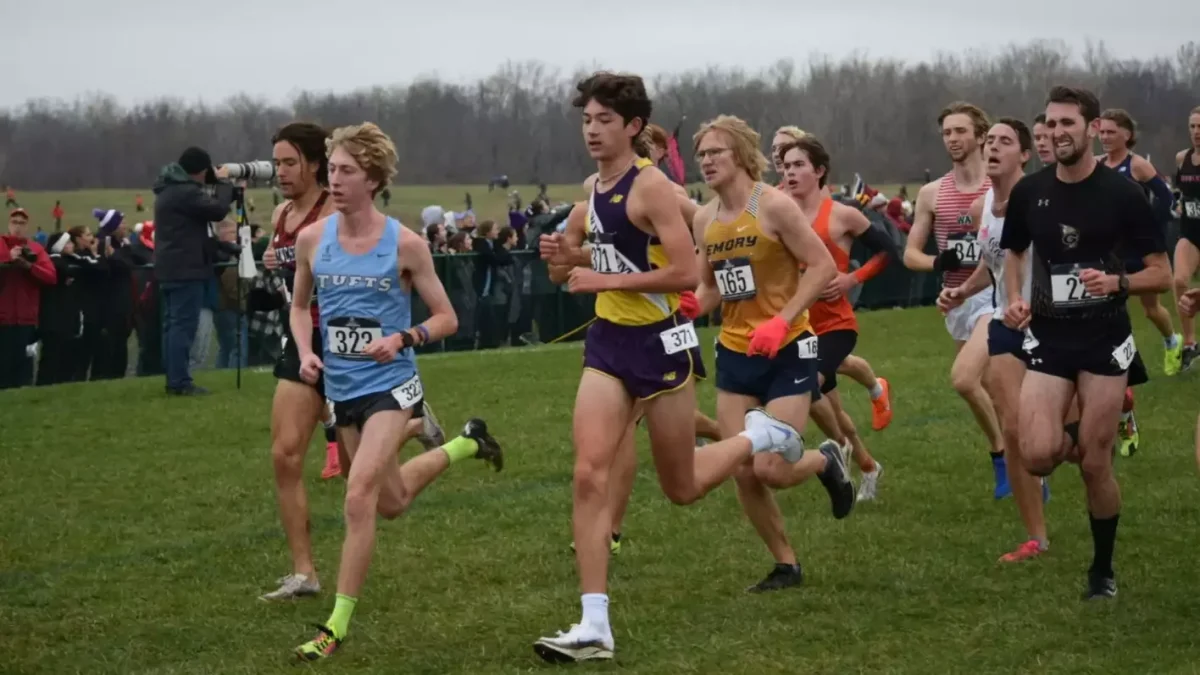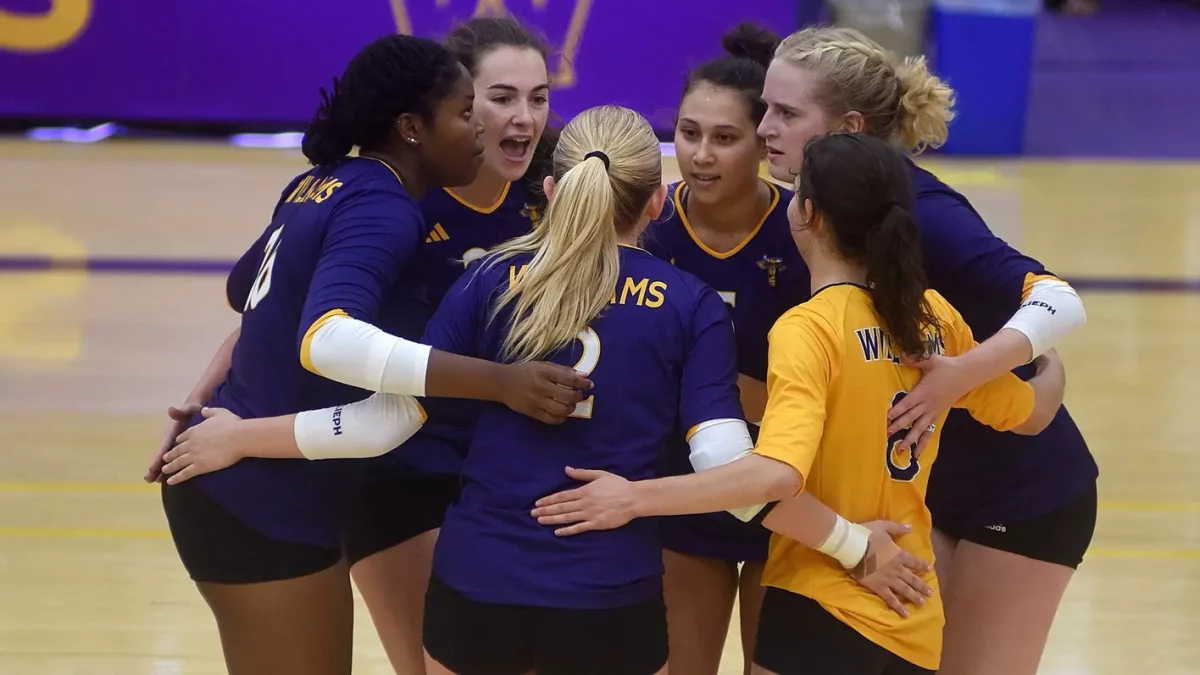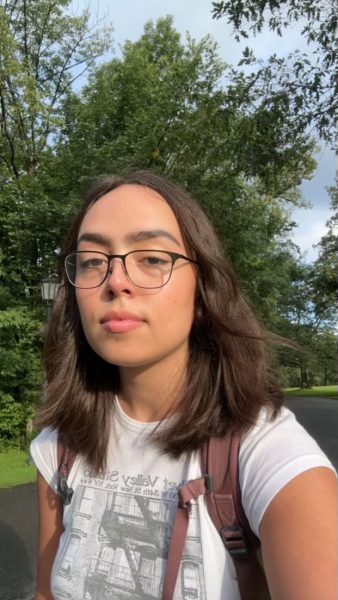
Team: Club volleyball
Hometown: Surprise, Ariz.
Major: English
Aluna Brogdon (AB): How did you start playing volleyball?
Allison Geis (AG): I started playing volleyball when I was 6 because my dad played it when he was younger. So I started playing in a recreational league, in my town. Then, I played in my elementary school, and I played varsity in high school. After my freshman year of high school, I started playing competitively for a traveling club team. I did that for the next few years.
AB: What’s the process for becoming captain of a club sport?
AG: It was always implied because I was consistent with practice and friends with the leadership. Currently, I’m technically president of the student organization. There are three teams: co-ed, women’s, and men’s. I’m co-captain of co-ed and captain of women’s volleyball, and Will [Gallon ’25] is co-captain of co-ed and captain of men’s volleyball. When I was a sophomore, there were four captains, and only one was a girl — so I inserted myself into these situations to speak up for the girls, and then it just kind of became a thing.
AB: What were the things you intervened on?
AG: Men and women play at different net heights — and a lot of the practices were geared toward the men. It was meant to be co-ed, but it was a little exclusive. It felt like a boys’ club for a little. I love volleyball — and I got along really well with the guys — but there’s a co-ed height. I just thought, ‘Let’s lower the net.’
AB: Does it feel important to you to get people who’ve never played volleyball into it?
AG: I think it’s important to me that anyone who wants to play has the opportunity to. If anyone is committed to coming, I’m going to make sure that I’m there for them, too. So if they’re saying, “I want to play volleyball, and I don’t know how,” I’m going to show them how.
AB: What’s the hardest thing for newcomers to learn?
AG: Probably hitting, because there’s a lot of timing involved that just takes a lot of practice. You have to jump, find the ball in the air, and then hit it in a certain way so that it goes down. I remember as a kid, I would go to open gyms, and they’d make us repeat our approach dozens of times. I remember at the time being like, “Oh my God, I hate this.” And now, I’m actually really grateful for the muscle memory. Now, when I’m teaching my new players, I’m like, “I know this sucks, but you’ll be happier for it.”
AB: How did the COVID-19 pandemic impact club sports?
AG: We don’t have the institutional memory of traditions that used to exist, unlike official teams because [the club] is so young — there are two or three seniors on the team. It’s mostly younger kids, so there isn’t the same passing on of legacy. We had a tournament my sophomore year, though, with Wesleyan and Amherst, and that was really fun. There were still a lot of COVID restrictions, so it was just us teams playing each other. It was really competitive — I think that’s something we’re lacking with club sports. When you’re in a really competitive environment, you get closer as a team… but that’s the trade-off of having beginners on the team. So I’ll make a family, not a team.
AB: Who’s a famous volleyball player that inspires you?
AG: I have no idols. Put that in — it’s a sin to have idols. [Laughs.] But in high school, I did look up to my best friend who played volleyball. I always admired her. She was just a really good leader, and always really positive.
AB: What do you think makes a good leader for volleyball in particular?
AG: I think volleyball is really personal, because it’s six girls on a court, all playing to the same end. And people make mistakes. Sometimes it’s you, and how you react to that matters — it’s specific to you. How other people react to you messing up is also specific to them. As a leader, you need to know the best way to cheer everyone up and keep people positive. It’s like, “I know this person messed up, and she needs to have no one talk about it.” Or, “I know this person messed up, and she needs to be acknowledged.” It’s paying attention and really knowing your team. It’s really intimate, and it’s really beautiful.




